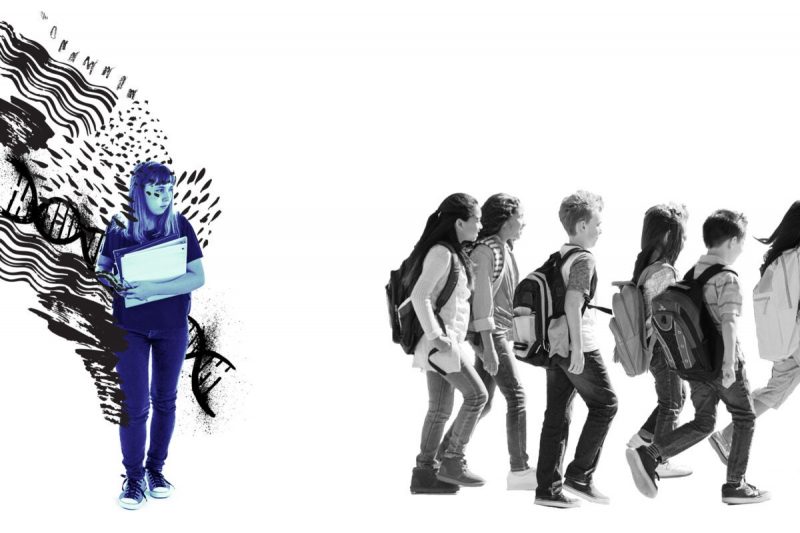Just outside the perimeter of the Tokyo 2020 Olympic Village was a special room, the only space near the village where athletes with young children were directed to care for their babies.
The room had a few chairs and offshoots for breastfeeding mothers, according to Greg Polychronidis and Katerina Polychronidis Patroni. The couple, who have represented Greece together in boccia at two Paralympic Games, welcomed their first child in May 2021 and received permission to travel as a family to compete in Tokyo just months later.
It was small, windowless and dark, added Edina Müller, who currently represents Germany in paracanoe. She breastfed her son throughout the Tokyo Games.
Covid-19 restrictions at the time meant guests – including children and caretakers – could not access the Olympic Village. Strict training schedules and GPS tracking in place for Covid safety made it difficult for athletes to visit their babies – if they were even approved to travel with them. Many athletes, such as Spanish synchronized swimmer Ona Carbonell, were driven to leave their nursing infants at home.
“It was very important to us to have our little baby,” Patroni said. “I can’t imagine how else we would have gone to Tokyo.”
For Polychronidis, it was not an option to leave their nursing child at home. “Either we could go the three of us or none of us,” he added.
In a stark contrast, they beamed with excitement while speaking about a new addition to the Paris 2024 Olympics facilities: the very first nursery for Olympic and Paralympic parent athletes.
The Village Nursery, which opened last week, was launched by the International Olympic Committee Athletes’ Commission in partnership with the IOC and Paris 2024 Organizing Committee. Allyson Felix, a US track star and member of the IOC Athletes’ Commission, was a strong voice in the project, which is sponsored by the US child care brand Pampers.
Athletes can book private or shared appointments at the facility, in the heart of the Village Plaza, which accommodates up to six family members. Here, they have access to private spaces for breastfeeding, a family lounge for playtime and a changing station.
“We are seeing more and more athletes continuing in their career after [starting a family]. Personally, knowing it can be difficult to combine both while focusing on your dreams, it doesn’t mean that you cannot be a parent and an athlete,” said Emma Terho, athletes’ commission chair for the IOC, who competed for Finland in ice hockey during the 2014 Olympic Winter Games with a young child.
“It’s important to make it easier to combine those aspects of life and to support athletes on and off the field. [Parenthood] is an important part of off-the-field. It is also very important to send the message that it doesn’t mean your career is coming to an end. The nursery, the amount of excitement and feedback we’ve been getting from athletes, shows this.”
The nursery is not the only “first” for Paris 2024. The Games are also the first to be carbon-neutral and gender-equal and to include competitions that everyone can take part in.
Athletes drive change
The IOC announced the nursery initiative in March after athletes expressed the need for better support to balance the Games and parenthood, according to Patroni, Polychronidis and Müller. Parent athletes came together in communication with the IOC and the International Paralympic Committee long before Tokyo, they said.
“We talk all the time about our needs,” Polychronidis said. “It is very significant and touching to see the committees understand that you need to have your baby and not just say ‘if you want to have your baby, stay home.’ This is what makes us human.”
Terho, who heads the commission, stressed the importance of athlete voices in the creation of the nursery, which she noted Felix was a strong advocate for.
“There was feedback coming from the athletes. We took the initiative and have been getting a great amount of support from the IOC departments and top partners,” Terho said.
For Felix, an 11-time Olympic medalist and mother of two, the initiative is part of a large push to support athletes who are mothers.
Felix created a child care fund to support mom athletes in 2021 and, this summer, received a $20 million grant from the Melinda French Gates Foundation to support Black maternal health. She partnered with Pampers in July to donate up to 1 million preemie diapers to neonatal intensive care units across the country and to launch the first Olympics nursery.
“The Olympic Games environment comes with a lot of complexity and pressures, and one way to offer relief is make it easier on athletes to spend time with their babies and young children without leaving the Athletes’ Village. I’m so pleased to partner with Pampers to make the Village Nursery a reality for the next generation of athletes who are chasing their dreams while also choosing parenthood.”
Generations of advocacy pave the way
The nursery is the latest step in a long and historic push to level the playing field for elite athletes with children. Throughout the years, female voices have risen to the top of calls for increased accommodations, including those specifically for breastfeeding mothers.
Pleas from Olympic mothers such as Canada’s Kim Gaucher and the US’s Alex Morgan and Aliphine Tuliamuk helped push the Tokyo 2020 Organizing Committee to allow parent athletes – such as Polychronidis, Patroni and Müller – to bring their nursing children to the Games that year.
“Right now, I am being forced to decide between being a breastfeeding mom or an Olympic athlete. I can’t have them both,” Gaucher said in a 2021 Instagram video. “Japanese fans are going to be in attendance, the arenas are going to be half-full, but I will not have access to my daughter? … It’s 2021. Let’s make working moms normal.”
The outcry over child care in Tokyo was only part of the picture, according to Müller, who has competed in four Paralympic Games and is set to compete in Paris in September.
Müller gave birth in 2019, the same year she was training to qualify for the Tokyo Games. She brought her son and a caregiver to every training camp and competition during the qualification process, organizing and paying for everything herself. The total cost exceeded 10,000 euros, she said.
“Sometimes, I feel organizing for this takes more time than my actual sport,” she said. “That was the hardest part.”
When Müller announced that she was pregnant in 2018, she received a letter from her training center congratulating on her retirement. For part of her pregnancy, she added, she was not able to compete and lost funding, amidst the new challenge of financing child care while getting back into her sport, until she returned to her previous status.
“I never said that I was going to retire. I was planning on competing again, and my goal was to compete at the Tokyo Paralympics. That was a little disappointing,” she said. “I qualified later in the summer. Nobody expected that.”
Müller says it was strange to see herself referred to as a pioneer for athletes who are moms.
“Five years ago, in a magazine, I was called a pioneer. That’s not true. There are so many [mom] athletes in the past that just get tuned out. Not many people know about it because they, and this topic, were not as present in the media,” she said.
“Now, we are. Now, people are recognizing ‘there are so many of us.’ But we are probably not more than before; we are just more present and louder.”
Leveling the field
Obstacles faced by parent athletes have been recognized by sports organizations around the world.
For Paris 2024, the French National Olympic and Sports Committee plans to offer additional rooms at the Pleyel Hotel near the Village for breastfeeding mothers and families, and special passes for parents with young children during the Paralympic Games.
In the United States, the volleyball, basketball and soccer national teams have implemented practices such as paying for family travel and child care providers. Organizations such as the Ladies Professional Golf Association have provided maternity support for decades, offering services such as child care at events and a flexible maternal leave policy that ensures mothers maintain their playing status on their return.
Advances by generations of athletes have created a foundation for the opening of the first Olympics nursery, according to Müller and Terho. But although the nursery is novel in offering support for parent athletes, it does not lift all barriers.
The push continues
Progress has been made, Müller says – but slowly.
“There is a lot going on in the background, a lot of talk going on and a lot of people working on it. But many athletes have the same problems I had five years ago,” she said. “This system is reacting really, really slowly.”
The nursery is a great addition, according to Müller, Polychronidis, Patroni and Terho.
“We’re very happy that this is now happening,” Terho said. “We want to take the feedback and the messages that we get so we continue to listen and engage with athletes on this. This is the first time, so after this, we can see more clear and simple the next steps for the future.”
Communication between athletes, the commission, and other organizations and partners was the key recipe for creating the nursery, and this collaboration will continue as athletes and organizers plan for future Games, they said.
“We are very happy with this improvement of the nursery. We hope that there are more steps in the future for Olympics and Paralympics,” Patroni added.
“Sport is for families, and sport is for everyone. Everyone should be included.”

